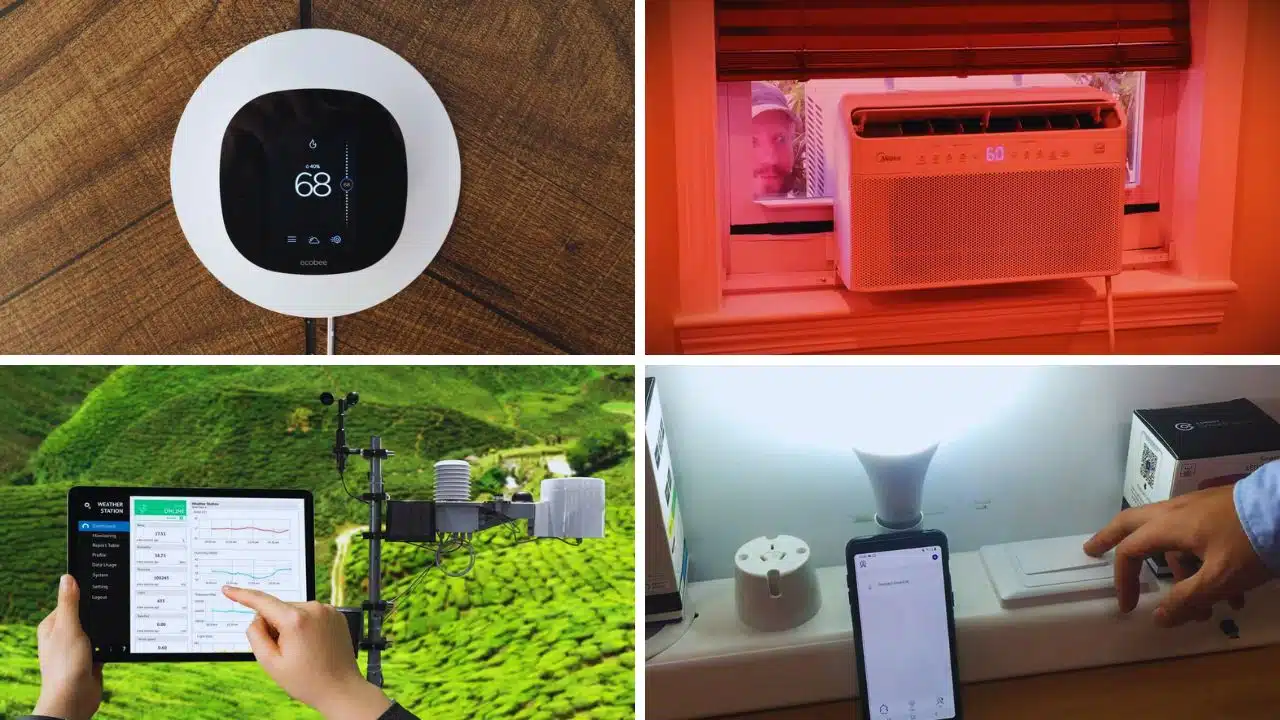In today’s tech-savvy world, smart home devices are not just about convenience; they can also be your allies in saving money on utility bills.
From reducing electric consumption to preventing water wastage, these devices are designed to make your home more energy-efficient. Here’s a detailed look at seven types of smart home devices that can help you save big on your electric and water bills.
1. Smart Thermostats: Managing Heating and Cooling Costs
The biggest contributors to your monthly utility bill are often heating and cooling costs. However, with smart thermostats like the Nest Learning Thermostat and the Ecobee Smart Thermostat Premium, you can optimize your energy usage.
These devices can learn your habits, detect when you’re away from home, and adjust the temperature accordingly.
By using geolocation and connecting with your local utility to take advantage of lower energy costs, smart thermostats can significantly reduce your heating and cooling expenses over time.
2. Smart Air Conditioners: Efficient Cooling Solutions
For homes without central air conditioning, smart air conditioners offer efficient cooling solutions. Many newer models use inverter technology, consuming less energy than traditional compressors.
Moreover, these devices can be integrated with other smart home devices to operate only when needed, lowering energy consumption.
3. Smart Lights and Switches: Energy-Efficient Lighting
LED lights have revolutionized energy-efficient lighting, consuming significantly less energy than incandescent bulbs. Smart LED bulbs can be controlled remotely via smartphone apps or connected to motion sensors and schedules to minimize energy waste.
Additionally, smart light switches offer a cost-effective alternative for rooms with multiple overhead lights, allowing you to manage lighting more efficiently.
4. Smart Plugs: Automated Appliance Control
Smart plugs enable you to control appliances based on schedules or your presence at home. Whether turning off lights or managing electronic devices, these affordable devices offer convenience while reducing unnecessary energy usage.
5. Smart Blinds: Temperature Regulation
Smart blinds play a small yet impactful role in energy savings by regulating sunlight and room temperature. By automatically adjusting based on the time of day or connecting to temperature sensors, smart blinds can help reduce the need for excessive cooling or heating, leading to energy savings.
6. Water Leak Detectors: Preventing Costly Water Damage
Water leaks can cause significant damage and result in high repair costs. Smart water leak detectors can detect leaks, humidity changes, or freezing temperatures, alerting you to potential issues before they escalate.
Some advanced models can shut off the water supply, preventing major leaks and water wastage.
7. Solar Monitoring Systems: Optimizing Solar Energy Usage
For homes with solar panels, solar monitoring systems offer insights into energy generation and consumption. By understanding peak production times, you can schedule high-energy tasks like laundry to maximize self-generated clean energy, reducing reliance on the grid and lowering electricity bills.
Final thoughts
Investing in these smart home devices not only enhances convenience but also contributes to long-term savings on your electric and water bills.
With technology-driven solutions, you can make your home more energy-efficient and environmentally friendly while enjoying the benefits of modern living.






































